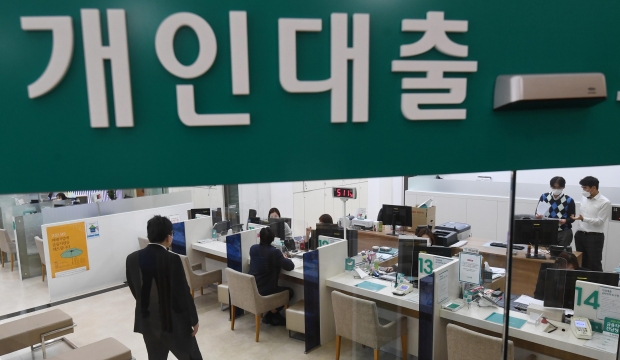
‘Debt investment’ is on the rise. The balance of credit loans for individual investors has exceeded 20 trillion won. As the KOSPI index, which surged at the beginning of the year, entered a correctional phase, which moved sideways from the 3100 point line, counter trading also surged. Experts believe that counter-trading is unlikely to lead to the overall contraction of the stock market, but in the case of the KOSDAQ market, where the proportion of individual investors is high, counter-trading may have a greater influence.
According to the Financial Investment Association on the 20th, the credit loan balance of individual investors as of the 19th was 21,263.7 billion won, up more than 2 trillion won from the end of last year (19,221.3 billion won). During this period, the average credit balance ratio of KOSPI listed companies increased from 1.88% to 1.98%. By amount, Celltrion’s credit balance was the largest with 6713 billion won, followed by Samsung Electronics (499.2 billion won), Hyundai Motors (3108 billion won), Shinpoong Pharmaceutical (219.7 billion won), and Kakao (1992 billion won).
KOSDAQ had a higher credit balance ratio. The average credit balance ratio increased from 3.22% to 3.34% during the same period, and the balance of bio stocks such as Celltrion Healthcare (567.5 billion won) Seegene (300.8 billion won) Celltrion Pharmaceutical (161.2 billion won) Genexine (1147 billion won) HLB (102.5 billion won) is higher Occupied. Kim Min-ki, a researcher at the Capital Market Research Institute, said, “Individual investors have a higher proportion of pursuing stocks with a sharp rise in stock prices than information-based investments.” “Generally, short-term reversals will occur after stock prices have risen excessively for a short period of time. It can happen, so be careful about using excessive leverage.”
As credit loans increased, so did concerns about counter-trading. This is because if the stock price of a stock invested in debt falls, a brokerage company is forced to sell the stock to recover the loan. Although different for each brokerage company, counter trading occurs when the price falls by 20% from the normal peak.
Daily average counter sales also hit the highest. From January 4th to 19th, the average daily counter trading amount was 23.9 billion won, a 38% increase from last month (17.3 billion won). In the past year, the average daily counter sales amount has never exceeded 20 billion won.
The securities industry believes that even if the volume of counter trading increases, this will not lead to a contraction in the stock market. Kim Dami, a researcher at Shinhan Financial Investment, said, “Although the current credit balance has exceeded an all-time high, it is maintaining a stable trend relative to the market cap, and the proportion of individual stock credit purchases has remained at an average level since the financial crisis. “Limited” said.
However, it is analyzed that counter trading has a greater influence in the KOSDAQ market, where the proportion of individual investors is high and small and mid-cap stocks are high. In the case of large-cap stocks, foreigners and institutional investors can accept the sale even if there is a sale due to counter trading, but the KOSDAQ stocks have a small trading volume and market capitalization, so the impact of counter trading may be more severe.
You should also look at the credit loan balance ratio. The higher this ratio, the greater the probability of a fall in stock market fluctuations. As of the 18th, Cho Kwang ILI (12.37%), Seorin Bio (12.19%), Daeyu (12.09%), Power Net (12.09%), and Deokshin Housing (11.45%) showed high credit loan balance rates. In the KOSPI market, Sunny Electronics, Daesung Holdings, and Yeonghwa Metal recorded a 10% ratio.
Reporter Hankyung [email protected]
Ⓒ Hankyung.com prohibits unauthorized reproduction and redistribution
